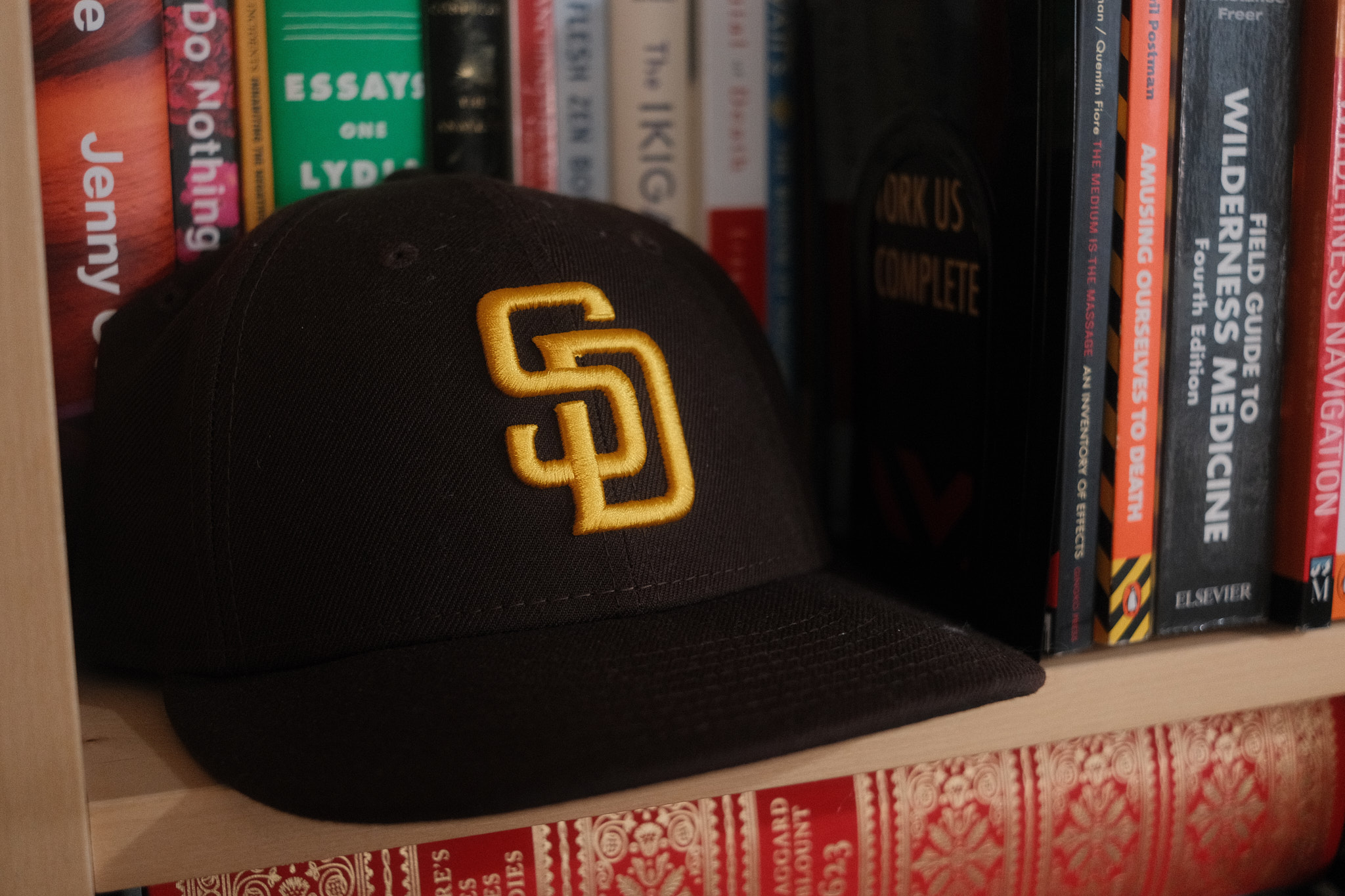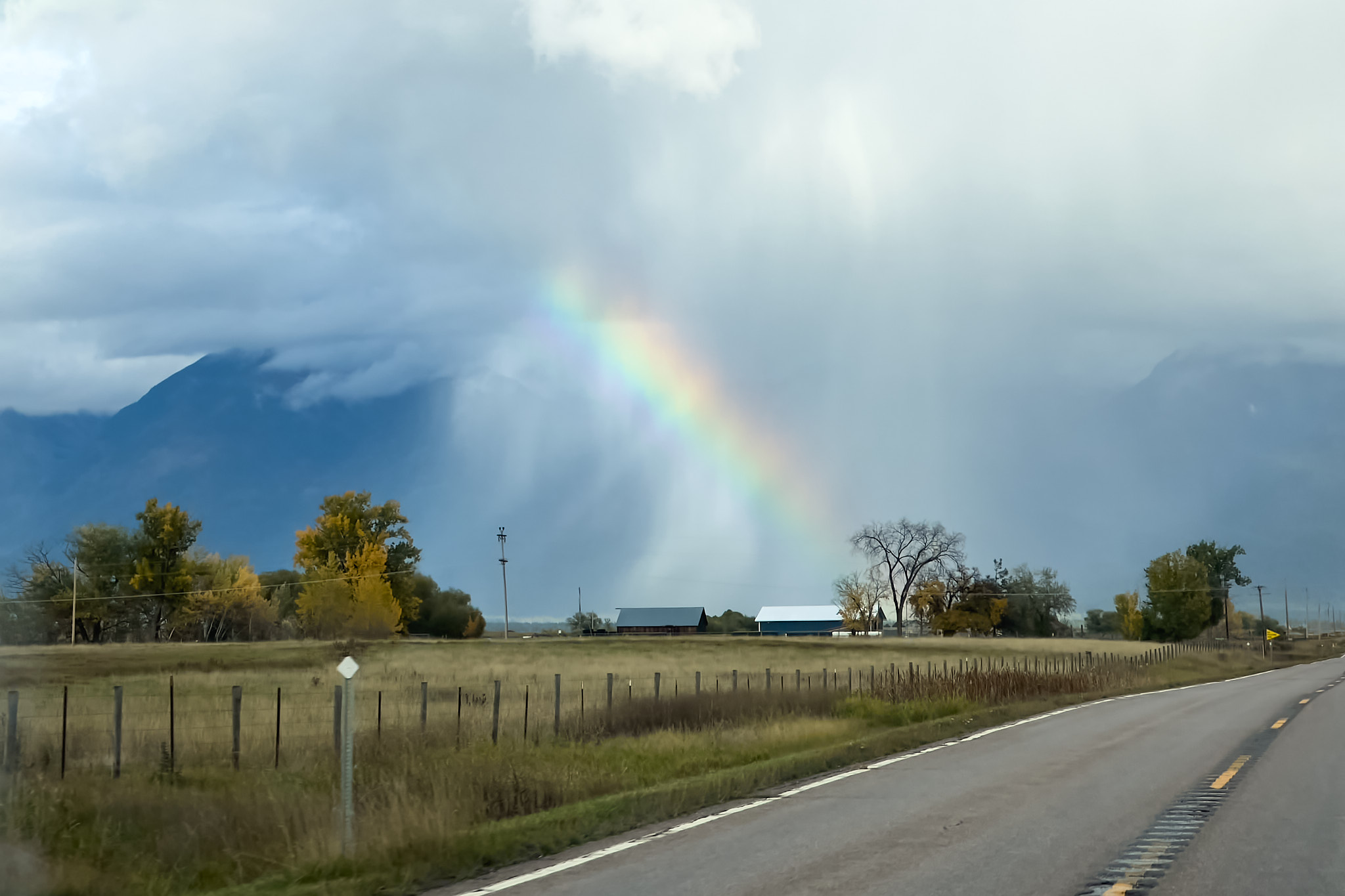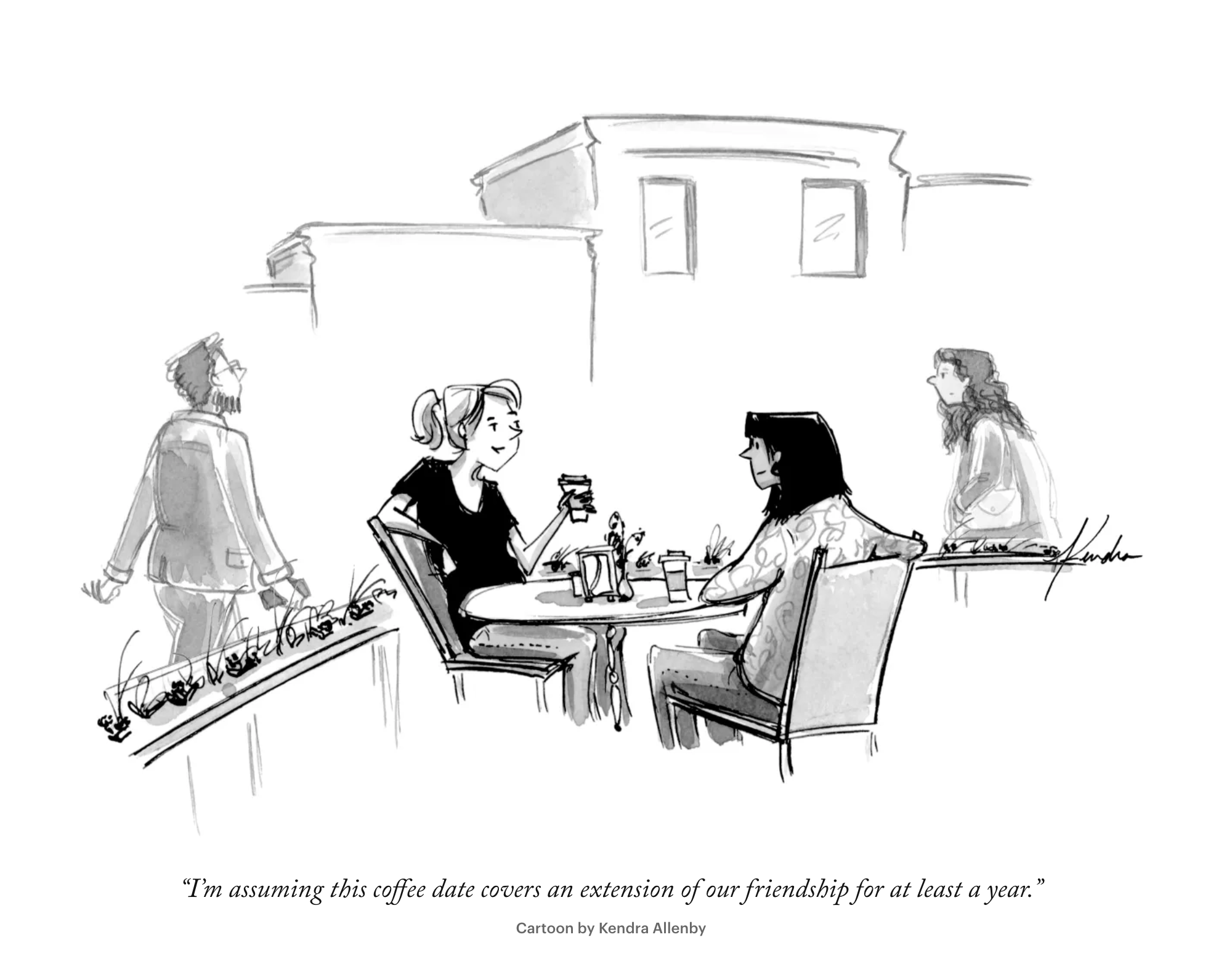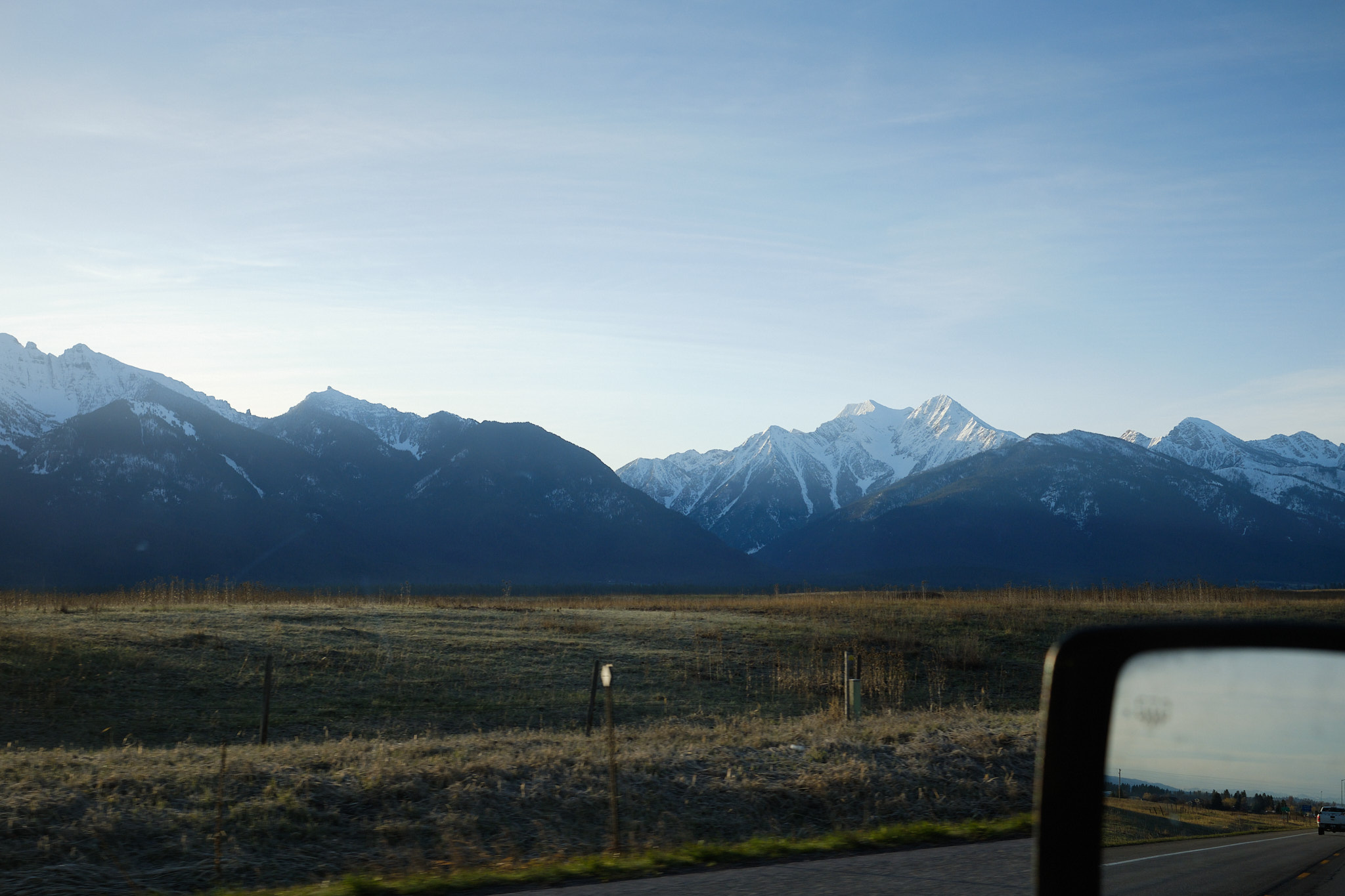- Notes
According to court documents, Lawrence waived his Miranda rights and told investigators, “I’m toast anyways I guess, so, yeah I did it.”
According to court documents, Lawrence waived his Miranda rights and told investigators, “I’m toast anyways I guess, so, yeah I did it.”
I love the new update to iA Writer, but this little tidbit has me super excited:
For quick access to your most important folders, add them to Favorites. That way, they’ll always be visible in the Organizer, and you can quickly dive into your active projects. Favorites are platform-specific. In the next step, we are planning to sync them across your devices. (emphasis mine)
Can’t wait.

Shohei Ohtani is the best player in baseball right now, and he could end up being the best player of all time, the GOAT of GOAT’s. To be the best at something, you have to sacrifice so much, and Ohtani is no different. I was so fascinated by Ken Rosenthal’s article today in The Athletic about Ohtani and the relationships around him (paywall).
Joe Maddon, Ohtani’s manager with the Angels from 2020 to June 2022, asked:
“Was he that married to baseball?”
The answer, those in Ohtani’s orbit say, was yes. Experts say such single-mindedness is not uncommon among Japanese athletes. But while many players who moved from Japan to the majors showed intense focus, Ohtani’s single-mindedness as both a pitcher and hitter is a level above.
Even though the article was focused more on the relationships around Ohtani, particularly Ippei Mizuhara, his interpreter that pilfered almost $17 million from Ohtani to satisfy his gambling debts, I was most interested in Ohtani’s intense focus to simply be the best, to be great. “One former Angels employee,” the article continues,
described Ohtani’s work-life balance as “99 to 1” in favor of work. He was so regimented in his daily preparation as a pitcher and hitter, the employee said, “it was not in his mind space to enjoy the moment.” Ohtani would take an iPad home to watch the next day’s starting pitcher. He even monitored his sleep — Sports Illustrated reported Ohtani strives for 10 hours a night, plus a two-hour nap before a game — through a wearable device.
Ten hours of sleep plus a two hour nap before the game. Half his day is spent sleeping, the other half is spent working on and becoming the absolute best baseball player he can be.
I’ve latched onto this article today because I am tired of consistently being disappointed with myself whenever I don’t live up to whatever lofty standards I want to meet, and I know I won’t ever be great at something like Ohtani is great at baseball, nor do I actually want to be great like him at any one thing, but I am tired of any and all excuses I come up with for not doing something I want to do. I want to do a lot of things, and I would love to be great at them, but at the very least, I want to respect myself and the things I want to do, and I don’t think I am. I feel like I’m consistently disrespecting myself and the things I want to accomplish, and I feel like I’ve lost my focus. The coronavirus obviously did not help, but if I’m being truthful to myself, I feel like I had lost it years before that.
One way I’ve tried to motivate myself is by reminding myself of what I have done and what I have accomplished, but instead of having that energize me, it drains me. I’ve read books and tried productivity systems and I’ve tried building habits and so many other things, and yet… I’m still here, frustrated and angry and depressed and a million other things. Again, I’m not comparing myself to Ohtani because he’s such a unicorn, but what I am doing is looking at his motivation to be great to my own lack of motivation to even read a book, let alone writing one.
I’m frustrated because I used to have this insane level of motivation to push myself to become something greater than my own imagination could conjure up, and it’s just gone now. Where did it go? Fuck, it’s frustrating. Where did it go? I don’t know, and I have no idea where to even begin to find it again.

Announcing your plans is a good way to hear God laugh, as Al Swearengen once said. I had every intention to update my blog more often, but life took over and had other plans. Life, for lack of a better word, has been busy. From work to relationships to my own personal projects, I simply haven’t had the time to sit down and write posts for my digital notebook. However, I’m forcing myself to sit down every night and at least look at my text editor and see if anything happens. A finished essay doesn’t just happen—I have to make it happen, and I’ve forgotten that.
Recently, I re-read Atomic Habits by James Clear. It’s not my favorite book (in fact, I would say, now that I’ve read it for a second time, that it’s a book I actively dislike), but I had noticed myself falling back to bad habits, and I wanted something that would snap me out of my bad routine. I was spending most of my free time on leisure activities and not enough time on the things that matter the most to me, from writing to reading to working out and photography. I wasn’t doing any of it, and I needed a change.
As I read the book, I came across a passage that has stuck with me since reading it a few weeks ago:
Professionals stick to the schedule; amateurs let life get in the way. Professionals know what is important to them and work toward it with purpose; amateurs get pulled off course by the urgencies of life.
Disregarding this dichotomy (one I disagree with completely), I want to highlight that last phrase: the urgencies of life. I love that phrase because of how accurate it fits the last few months for me. The urgencies of life had overwhelmed me to a point where all I sought was leisure, and I used that leisure to distract me from simply living my life, the life I wanted to live, the life I know I’m capable of living. I think to assume that anyone is capable of not being swept up by the urgencies of life is either delusional or has never lived. They happen, we all get swept up by it, and I believe, at some point or another and in some way or another, we all deal with it our own way. Aren’t we all amateurs? Does anyone really know what they’re doing? Anyhow…
Not too long ago, as I looked at how I was living my days and thought of ways to improve it, I came to this rather simple realization, one that I don’t know if it’s naive or brilliant: if I fill my days with the things I want and love to do, from writing and reading to working out and photography, then I really don’t have time for much else. If I’m reading, I don’t really have time to check social media. If I’m writing, I really don’t have time to watch TV. If I’m working out, I really don’t have time to overeat or play video games. This seems so simple that I’m honestly embarrassed to even write and admit this. It’s like, d’uh, Mario! Of course that’s how it works. If you make time for the things you love, then you don’t have time for the things you don’t. Maybe it’s more complicated than that (self-control and discipline do seem to be needed, I think), or it could really be that simple. I’m not sure, but that’s where I’m at right now.
A few weeks ago, a massive rainstorm hit my area, lowering temperatures and drenching everything. Roads were slick, the sky was dark, and there didn’t seem to be any time to enjoy the beautiful fall weather. On my way home from work one day, the rain had stopped, the sky began to clear, and I saw this rainbow appear off toward the horizon. All I had was my iPhone, so I pulled it out and took this photo. I feel like the rainclouds are clearing from my life, and I can maybe make out a rainbow off in the distance, toward a horizon I’m beginning to see with greater clarity and focus. I really don’t know where I’m going or what I even want from my journey, but I like the road I’m walking, especially if it includes more rainbows.
“We are all digital notebooks now,” Warren Ellis wrote. “Writing just for ourselves and whoever finds their way to our caves to look over our shoulders as we scribble thoughts down in public and daub pictures on the walls.”
I’ve stopped publishing notes and journal entries on my blog because I’ve mostly been writing in my notebooks now. I’ve been writing for at least an hour every day since the start of last year, a span of about 636 days. I’ve written hundreds and hundreds of pages in my notebooks, and when I couple that with the time spent trying to live my life as best as I can, I’ve simply stopped making time for this online space of mine. I feel kinda meh about it, honestly. The only reason I’m writing this entry is because I want to publish something at least once a month, keeping some trivial streak of mine alive.
Warren was writing about something he calls a “social media winter,” this idea that “social media doesn’t create ‘growth’ any more.” “If you use social [media] to keep up with your friends,” Warren wrote, “then get them to move to new channels with you and keep them close.” Facebook, Instagram, and especially Snapchat have been daily companions to me for the past year, and I have enjoyed myself tremendously on them because my friends are on there. Contrary to my past feelings on them, my time on social media this year has been nothing but positive. They’re not without their problems, but what doesn’t have problems nowadays? So again, couple this with my time spent in my notebooks and living my life, and I’ve frankly lost most of my motivation to tend to this little digital notebook of mine.
And yet…
I like having an online presence. I like having my own little digital garden with my name on it and my words and my photos and my everything on it. Even now, as I’m writing this, I’m feeling those old feelings of pleasure and contentment and even calmness that comes with writing something for myself and for the 2 people who have added this site to their RSS readers. I read Warren’s post on the day he published it, and I’ve been thinking about it ever since. This idea was planted then and has been growing throughout the week, and sure, I probably could’ve explored it some more in my notebook, but he’s talking about the web, about blogging more specifically, and I feel like my response to it should be on the web, too.
I’ve gone through spurts of intense productivity and long stretches of silence, and I’m not sure where I fall on that spectrum now. I have ideas and desires and plans for this digital notebook of mine, but I don’t know what will come of it. Life has been incredibly fun and challenging this year, and I’ve enjoyed writing about it in my notebooks and talking about it with the people I care about the most, so I’m not quite sure how to fit this place into my life right now. This could be the start of something fun and cool, or it could simply be the ravings of a madman. Not sure yet.
I guess we’ll find out, right?
“The US’s first-ever trial in a constitutional climate lawsuit kicked off on Monday morning in a packed courtroom in Helena, Montana,” writes Dharna Noor in The Guardian.
I am so proud of these young people, and I am so proud this lawsuit is happening in Montana. I love Montana, even though I’ve had my issues with it over the years, and I actually did not know that
Montana’s state’s constitution has since 1972 guaranteed that the “state and each person shall maintain and improve a clean and healthful environment in Montana for present and future generations”.
That is incredible. I hope this lawsuit kicks off the proper energy and motivation for other states and countries to bring more lawsuits like this to the courts. A man can hope.
Bahala na, as taught to Jenny Odell by an artist born in the Philippines, is a Tagalog phrase that translates to “whatever happens, happens”:
That may sound resigned or passive, and indeed, an American psychologist argued in the 1960s that the attitude described by bahala na had similarities with American fatalism. But when the Filipino psychologist Alfredo Lagmay interviewed people around Manila about its usage, a more interesting picture emerged. What he found was a “positive, functional response to uncertainty,” something that meant meeting the present with everything you had at your disposal, a sharp-eyed sallying forth even when you didn’t feel totally prepared or in control. It was a form of acceptance that was actually the opposite of giving up because acceptance was the beginning of observation and response.
Jenny Odell, an author I love, continues to describe bahala na in a way that’s similar to what I’ve learned in my recent adventures with Zen and Stoicism:
Both declinism — the belief that the past was better and the future will be worse, and blind optimism — the belief that the past was worse and the future is inevitably better — absolve us of our responsibility to act now, in this gap between the past and future. In contrast, the improvisational spirit lives inside that gap, and it can be surprisingly full of ingenuity and joy even when the situation is dire. As something we share with our nonhuman brethren, the capacity to form new responses is how you know you’re alive, today, here. So when my mum says, “whatever happens, happens,” what I hear is not resignation but a mix of humility, trust, and curiosity. And I think it’s like this — through love of the present, and of ourselves in it — that we actually win the future.
All we have is now. The past and the future don’t exist, now. We live now. I don’t know how else to describe it. The present moment is the only moment that matters; life is made of the present moment. To live well, live now.
To continue the thought from my previous post, Robin Dunbar explains how friendships die:
Friendships die when we do not see the people concerned often enough to maintain the relationship at its former level of emotional intimacy—and especially so when neither side can quite muster the energy to do anything about it. So the tendency is for such relationships to fade quietly, almost by accident rather than design. The road to friendship is paved with good intentions to meet up again, and no doubt a good bit of guilt—we must get together sometime… but somehow sometime never comes because too many other priorities intervene.
There’s that energy I mentioned before. Friendships die when neither side can quite muster the energy to do anything about it. Don’t want friendships to die? Do something about it.
This reminds me of this New Yorker cartoon from this week’s issue:

In a chapter titled “Why friendships end” in his book Friends, Robin Dunbar writes about a study conducted by Michael Argyle and his collaborator Monika Henderson that examined the rules that underpin friendships. They identified six key rules which were essential for maintaining a stable relationship:
I’m embarrassed to admit this, but I’ve been working hard this year to improve my friendships and my social network as a whole, and I have found Friends by Robin Dunbar to be an invaluable resource to help me understand what makes friendships work and how I can be a better friend to those I care about.
I’ve lost too many friends over the years from the simple fact that neither side devoted enough energy in maintaining the relationship. All it takes is a bit of energy, and that has been where I’ve been trying to redirect my attention and focus onto this year. I can’t say that I’m the most popular person in the world now or anything, but I can say that it has been fun to make plans with my friends, to hang out with them, to confide in them, and to share some part of our lives together.
This has been really tough, though. Even though these people are my friends, I still feel that fear of rejection, of cancelled plans, of maybe mistaking where I think my friends lie in my friend circles and where I lie in theirs. Calibrating that has been interesting. Keeping friendships takes a lot of energy, and I think I’m ready to expend as much of it as possible on them.

For the past few weeks, I’ve been copying down the notes I took while reading Shunryu Suzuki’s Zen Mind, Beginner’s Mind in my notebook. It’s been a marvelous journey but a journey that is not yet over.
While you are practicing zazen, you may hear the rain dropping from the roof in the dark. Later, the wonderful mist will be coming through the big trees, and still later when people start to work, they will see the beautiful mountains. But some people will be annoyed if they hear the rain when they are lying in their beds in the morning, because they do not know that later they will see the beautiful sun rising from the east. If our mind is concentrated on ourselves we will have this kind of worry. But if we accept ourselves as the embodiment of the truth, or Buddha nature, we will have no worry. We will think, “Now it is raining, but we don’t know what will happen in the next moment. By the time we go out it may be a beautiful day, or a stormy day. Since we don’t know, let’s appreciate the sound of the rain now.” This kind of attitude is the right attitude.
— Shunryu Suzuki
All that matters is right now. This moment is all we have. Let go of the past and the future and simply focus on this moment, on this breath, and appreciate this existence. Death is waiting for us; life isn’t. So, live.
Page 1 of 9